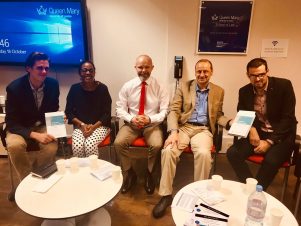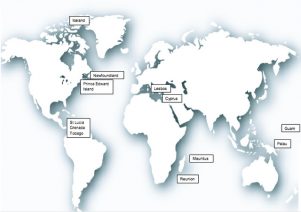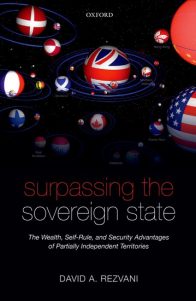Announcing Call for Papers for Special issue of the journal Sustainability
with guest editors Professors Dr. Simron Singh, Dr. Marina Fischer-Kowalski, and
Dr. Marian Chertow
DEADLINE: August 31, 2019
NOTE FROM THE EDITORS: This special issue aims to provide planners and managers with specific information about the physical basis of their island economies. what and how much material and energy is locally produced, imported, transformed, demanded, used, and discarded. By providing fairly accurate data, with scenarios and policy recommendations, we expect these contributions to have a high degree of traction towards more sustainable use of resources as a climate adaptation strategy. Such data will also be of immense value to support economic sectors, identifying opportunities for innovation around material recovery and reuse to support resource circularity and sustainable practices.
Based on a materials stock and flow principle, the field of Industrial Ecology systematically analyzes interactions between human/industrial activities and the environment, in order to move towards practices that are sustainable in the long-term. The emphasis is on society’s resource use and resource efficiency at multiple scales. The concept of “social metabolism” and its accounting framework, Material and Energy Flows Analysis (MEFA), have made considerable advancements in the ability to measure resource throughput for understanding long-term trends in national and global resource use, decoupling, and circular economy.
Islands are excellent focal points for studies of Industrial Ecology. Not only does the clear boundary of islands simplify tracking resource flows, but the limited resource availability and carrying capacity of small islands warrant better tracking and management of these inputs and outputs. The challenge of resource security on small islands is further aggravated by the global environmental change. Sea level rise and extreme weather events result not only in infrastructure losses but also in the immediate loss of critical services. Restoring the services provided by these stocks comes with large material requirements for reconstruction, oftentimes incurring huge debts.
This Special Issue invites contributions that look at material stocks and flows on small island states (SIS) and sub-national island jurisdictions (SNIJ), how such insights can support island societies to move towards more sustainable and resilient modes of production, consumption and infrastructure development. The special issue will also consider compelling contributions related to island sustainability in general.
Click here for details.
_________________________________________________________________
Democracy in Small States: Persisting Against All Odds
Book launch of a book pertaining to our conference theme features three of our Conference Planning Committee members: Dr. Wouter Veenendaal (far left), Dr. Godfrey Baldacchino (second from right), and Dr. Jack Corbett (far right). The book, co-authored by Veenendaal and Corbett, is entitled Democracy in Small States: Persisting Against All Odds (Oxford University Press). The other panelists include Dr. Edalina Rodrigues Sanchez (2nd left) and Dr. Baldur Thorhallsson (centre). The venue was Queen Mary’s University of London. Congratulations, all!

_____________________________________________________________________
The Future of UK Overseas Territories
Dr. Peter Clegg, member of our conference planning committee, appears as a witness before The UK Parliament’s Foreign Affairs Committee, which is having hearings into the Future of UK Overseas Territories. Peter and other speakers address the practical and intangible reasons why Overseas Territories might wish to maintain their status – a topic that aligns perfectly with the themes of this conference. Click here for video link.

______________________________________________________________________
Comparing Small Island States and Subnational Island Jurisdictions:
Towards Sustainable Island Futures
A three-year research project funded by the Social Sciences and Humanities Research Council of Canada (SSHRC)
Island jurisdictions are often viewed as vulnerable, poverty-stricken, and destitute, but research shows many of these islands are better described as innovative and entrepreneurial. This three-year project, funded by the Social Sciences and Humanities Research Council of Canada (SSRHCC), brings together six representatives of small island states (Iceland, New Zealand, Mauritius, Palau, Cyprus, St. Lucia, and Grenada) and six representatives from non-sovereign, subnational island jurisdictions (Prince Edward Island, Newfoundland, La Réunion, Lesbos, Guam, and Tobago). These groups will compare experiences, to see whether statehood is a boon or hindrance when implementing sustainable practices in social-political, cultural-artistic, economic, and environmental areas.
 The project will develop a set of measures of sustainability and sovereignty by undertaking household and focus group surveys using comparisons of six pairs of islands. The Institute of Island Studies and the UNESCO Chair in Island Studies and Sustainability will coordinate these activities, bringing together island researchers and solving issues using a local-to-global integrated approach.
The project will develop a set of measures of sustainability and sovereignty by undertaking household and focus group surveys using comparisons of six pairs of islands. The Institute of Island Studies and the UNESCO Chair in Island Studies and Sustainability will coordinate these activities, bringing together island researchers and solving issues using a local-to-global integrated approach.
________________________________________________________________
An emerging “Islandian” sovereignty of non-self-governing islands
by Gerard Prinsen and Severine Blaise
(International Journal: Canada’s Journal of Global Policy Analysis, February 16, 2017)
Abstract
Comparative analyses have found that non-self-governing islands tend to have much better development indicators than sovereign islands. Perhaps unsurprisingly, since 1983 no non-self-governing island has acquired political independence. This paper argues that rather than merely maintaining the status quo with their colonial metropoles, non-self-governing islands are actively creating a new form of sovereignty. This creation of an “Islandian” sovereignty takes place against the backdrop of debates on the relevance of classic Westphalian sovereignty and emerging practices of Indigenous sovereignty. This paper reviews global research on the sovereignty of islands and from this review, develops an analytical framework of five mechanisms that drive the emerging Islandian sovereignty. This framework is tested and illustrated with a case study of the negotiations about sovereignty between New Caledonia and its colonial metropole, France.
READ MORE
Be sure to check out this presentation by Alison Lotti, John Overton, Gerard Prinsen and Elizbeth Worliczek on “Inter-island rivalry in the Pacific.”
______________________________________________________________________
And here’s the link to a book trailer for David A. Rezvani’s new book, Surpassing the Sovereign State: The Wealth, Self-Rule, and Security Advantages of Partially Independent Territories (Oxford University Press).
- The first book that systematically discusses the existence, origins, maintenance, and occasional termination of partially independent territories in international and comparative politics
- Assesses the costs and benefits of partial independence as compared to full independence for Scotland, Catalonia, Hong Kong, Puerto Rico, Iraqi Kurdistan, as well as other similarly situated polities around the world
- Charts new terrain on the changing nature of the international system
- Based on interviews with high ranking government officials in a wide range of countries

Supported by the UNESCO Co-Chairs in Island Studies and Sustainability at
University of Prince Edward Island/University of Malta,
The University of Aruba, and
the Centre of Excellence for the Sustainability of Small Island Developing States,
Oranjestad, Aruba





